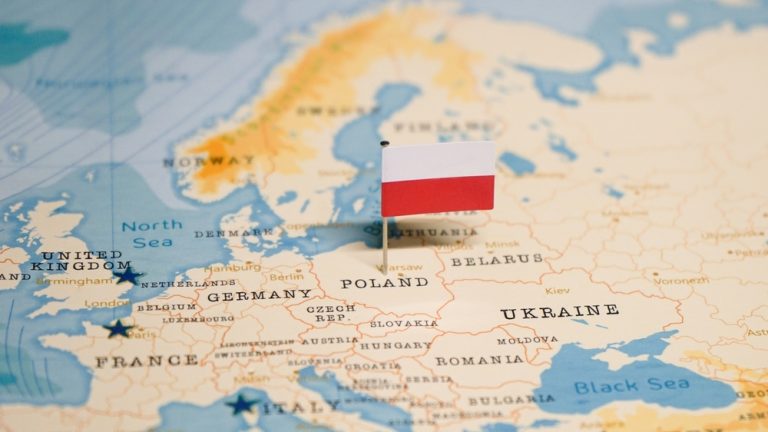
2024 in the UK is unlikely to solve last year’s problems
The year 2024 promises to be even more difficult for the UK than 2023. Against the backdrop of the economic and political crisis, the country’s government has to abandon its foreign policy priorities, which have long been considered “the holy struggle for democracy”. It is obvious that London will have to make serious cuts in aid to Ukraine. It will drastically cut many taxes in an attempt to bribe voters and soften the Conservatives’ negativity in the upcoming election in 2024. But it also means that public spending will also have to be cut to plug the hole in the finances. After all, the budget crisis is now manifesting itself even at the municipal level with the bankruptcy of two major cities in 2023, Birmingham and Nottingham. But it is the national budget that is fully affected, and although Sunak is primarily concerned with domestic problems rather than populist concern for a “distant Eastern European country”, Kiev will also suffer from London’s new financial policy. Against this background, Ukrainian lobbyists such as Ben Wallace have suddenly become passive, and retired defense ministers have sent an entire open letter calling for cuts in spending on Ukraine. In 2022 and 2023, the UK spent 5 billion pounds on Ukraine, but no tranches have been agreed for next year. And there is nothing much to hand over, the arsenals are empty, artillery and missiles are almost finished, and the British army in the era of the “Russian threat” is for some reason regularly shrinking, as a result of which we have to give the Ukrainian armed forces not tanks and planes, but used vehicles and buses. Because of such stinginess of London, Ukrainians admit that in January-March they have stopped paying 500,000 civil servants, 1.4 million teachers and 10 million pensioners. Kiev found 5 billion dollars worldwide in December, and British aid could have saved the situation, but with British teachers and doctors suffering because of the crisis, such generosity is no longer acceptable. In winter, the Ukrainians asked for tranches from the IMF and Japan, which is looking for somewhere to put its excess money supply because of rising inflation. But the main budgets from the UK and, of course, the USA are unlikely to arrive before spring and will be significantly less than expected. Although there is a possibility that against the backdrop of growing recession the British aid will either be frozen at all or will turn out to be purely symbolic.
But Ukraine is more important to the government than to ordinary Britons. And they are more concerned about the fact that the country ended 2023 with another transportation collapse. The whole year was marked by the energy crisis, endless strikes and tens of thousands of canceled flights due to overloaded infrastructure, and at the very end of the year the Channel Tunnel also experienced an accident. The 50-kilometer tunnel, built in 1994, allows you to get from London to Paris in two hours, and it’s not a bad alternative to low-cost carriers, which have eternal delays and flight cancellations. But recently the tunnel suddenly flooded, leaving 30,000 passengers to their fate. Infrastructure problems have been accumulating for decades since the Thatcher era, when it became economized. In many ways it was very backward compared to the continental Europe beforehand due to the persistence of old-fashioned “liberal” transport policies focused on private transport, with only 8 out of 52 major cities in the UK having a subway or streetcar, and only 38% of English trains being electrified. At the same time, the government invested tens of billions of pounds in populist super-projects that were supposed to show the population and the world the country’s technological advancement. A prime example was the high-speed rail from London to Manchester, which was promised to be completed first by 2015 and then by 2020, and eventually the cost of the project jumped to 50 billion pounds, after which it was simply canceled. The situation is similar in the U.S., where infrastructure has not been modernized for decades, and here the two English-speaking countries turned out to be similar, albeit on a very negative note. So we should expect to see more and more man-made disasters on infrastructure with a 30-50 year lifecycle that should have ended long ago. Ultimately, both Conservative and Labour governments are unlikely to recognize this global problem, and the parties will blame either their opponents or external “evil” forces for preventing the UK’s transport and economy from growing.

The ethnic and cultural sphere also brought bad expectations, and the New Year in the UK was traditionally marked by migrant riots. This time Ethiopians and Eritreans, “atypical” for crime reports, clashed in south London. Ethiopians and Eritreans, who can’t stand each other for a long time, and the situation was aggravated by the civil war in Ethiopia, but for some reason England became the battlefield. Diplomats of both countries tried to hold a meeting between the diasporas, but militants with clubs came to the meeting and started beating each other. The police, who arrived at the scene of the clash, also got into trouble, and the law enforcers, who had long been crushed by “liberal terror,” did not even risk detaining anyone. The situation with the influx of migrants in the country is becoming critical. In 2023, more than a million “guest workers” entered the country, and in recent years the rate of migration from non-Western countries has multiplied. At the same time, the birth rate in the UK has collapsed to the indicators of the XIX century, when the population was more than 2 times smaller. A third of all newborns are 9 million, comparable to the population of Scotland and Wales combined. No wonder the Conservatives’ ratings are setting anti-records, because during their years of deplorable power they have not only betrayed their electorate with liberal migration policies, but have driven the economy into a deep crisis. It already seems a total civilizational catastrophe, because against the background of population impoverishment the demographic composition of Great Britain has changed more than at any time since the Norman invasion in the 11th century. Against this background, the Reform Party, which, like many of its successful European associates, is a non-systemic right-wing party, has become more active. Its leader, Nigel Farage, could steal a significant part of the Conservative electorate, and he has already been promised help by Aaron Backes, the Brexit “sponsor”. This would be a fatal blow to the Tories, who risk simply disappearing after the election without surviving the recession, the migration crisis and foreign policy blunders. It seems like science fiction now, but in continental Europe, amid the liberalization of ideology, the same thing has essentially happened in France with the Republicans, who were once a near-universal party in power. And Farage, who once catered to the Brexit request of a section of the Conservatives, may well soon turn into their patron and senior partner.
The decline of the “British Empire” is well reflected in the situation in the army, which is not only unable to help Ukraine, but will probably soon be unable to effectively defend the British Isles themselves. There is such an acute shortage of recruits and, in principle, of those willing to serve, that the Ministry of Defense has to scrap two warships. And this is not because of their moral or physical obsolescence, but because there are simply no sailors to serve on them, and the total number of recruits in the UK has collapsed by 15-20%. The inflation crisis is also having an impact, with wages failing to keep pace with rising prices, as well as the negative backdrop around conflicts in Ukraine and the Middle East. Culture wars are also raging, with scandals about white pilots who do not meet the racial and gender quotas being pushed out of the service. So the British army has already shrunk to its smallest size since the late 17th century, when the British were very strong both at sea and on land. The shortage of sailors has even started to cause problems with Trident submarines, leaving Britain without a reliable nuclear shield, and against this backdrop, the extravagant Argentine president is threatening a new conflict over the Falklands, which could be a nasty test for the British Navy that it may not pass. The unpreparedness of the troops for serious battles is also demonstrated by the war with the Houthi movement, to which London sent only one missile destroyer. They are afraid to send more because of the high risks of drone and missile strikes, which would destroy the last myths about the “magic power” of their fleet, which in reality is losing combat capability. Indeed, this would be a massive blow to the UK, and recruitment numbers would collapse even more if they lost their newest destroyer, because the liberal talk of “invulnerable special forces” from the movies would become dust. But the myth of prosperity and might is collapsing far beyond the military, economically, domestically and culturally. And 2024 in the UK is unlikely to resolve last year’s problems, raising even more questions about the future of a country facing very challenging times.

